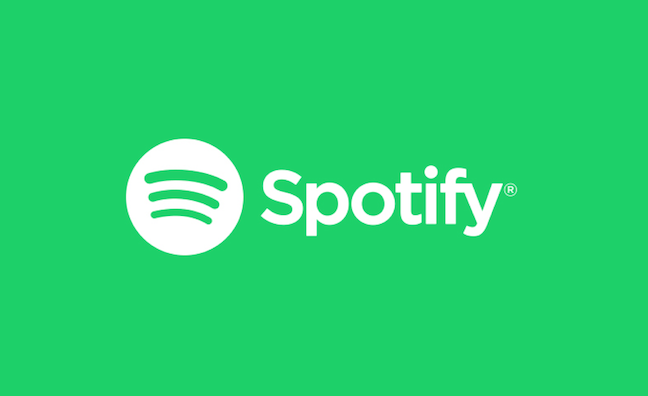Lobbying group Digital Music Europe (DME) will be making its voice heard for the first time tonight (November 20) with a launch in Brussels, where DME president and Deezer CEO Hans-Holger Albrecht will be addressing stakeholders and lawmakers in the EU. There will also be a performance by the band Alice On The Roof, just so everyone understands that music is at the heart of the member companies’ success.
DME has been launched to bring together streaming platforms including Spotify, Deezer, Qobuz, Soundcharts and SoundCloud, with a unified voice in the policy-making environment, including copyright, geo-blocking, online platforms, e-privacy, data transfers, digital contracts and taxation. Olivia Regnier, chair of DME and director of EU regulatory affairs at Spotify, spoke to Music Week about their aims, including securing net neutrality, an open market and communicating how they are successfully bringing the music industry back to growth.
Why is there a need for Digital Music Europe?
More and more services are now an integral part of the digital music market – we are growing, we are a main contributor to the growth of the music market. Many of us are European companies, but we were not present together in Brussels and there’s definitely an increasing interest in the European environment for the voice of the digital services that are such key actors in the market. We [Spotify] have been coordinating with Deezer and other services on various European policies. At some point we felt that, with the EU progressing its digital single market agenda, it was definitely useful to group ourselves and speak collectively so that we are heard as a sector. It gives a chance for some of the smaller companies that are not necessarily present in Brussels to be heard. Until now, none of our companies was actually a member of any association in Brussels.
What’s on your agenda?
I think the first thing is to improve the visibility of digital services and continue to work with the policy makers on recognising how innovative and how successful we are in the digital market. We want lawmakers and different institutions to recognise that European services really have [created] an example for the digital environment. More practically, we would like to contribute to relevant issues relating to copyright, and we would like a licensing environment that is conducive to us in continuing to develop across Europe. Having an open market for us to develop our activities is another big issue for us. Any debates relating to data are also very relevant, because like internet services we rely enormously on data to improve the consumer experience and to make recommendations and to provide a service that corresponds to what consumers need and want.
Will you be actively lobbying on the EU copyright reform process?
We don’t have major issues with the copyright reform, as what the Commission has proposed is fine for us. We are watching it just to make sure there are no proposals that will make our operations more complicated on the licensing side. But we are happy with what the Commission has proposed, we would like it to go forward as it stands.
What are the challenges for streaming companies?
I think it will be important for us that there are fair rules of the game and that we can operate in a fair environment, where we don’t have blockages to us on platforms for accessing our customers. We are watching technical developments, and commercial developments, and we want to make sure there’s no discrimination between services. It’s a debate about the internet environment. The Commission is looking at this and planning to publish proposals about fair rules for online platforms, which will definitely be relevant for us.
We are actually bringing the whole sector back to growth
Olivia Regnier
The music industry has voiced concern about YouTube, safe harbour and the value gap. What’s your take on that?
The YouTube debate is part of the copyright reform [issue] with rights holders complaining about how YouTube doesn’t take proper licences with them. We are a group of services that do take licences with rights holders and negotiate up front, so we are really partners – we have a different approach and a different business model.
Could YouTube join your body?
We are an alliance of European services, so that’s why YouTube is not part of this group. We focus on the European angle because we feel that enables us to bring a consistent story to the lawmakers in Brussels.
Some rights holders have previously expressed concerns about streaming platforms – has the music business now adapted to the model?
More and more we can see that streaming is becoming the major part of the digital market and it is driving the market back to growth because it over-compensates for the decline in downloads and physical. We are showing that with a new business model that consumers have embraced, we are actually bringing the whole sector back to growth.
How widely do you want your voice heard on industry issues?
It will depend on the issue. We are going to deal with the agenda of the EU, we are a new organisation so we are going to define our priorities. We’ll try to intervene on anything that’s relevant to us.
If more records are withheld from streaming, like Taylor Swift’s Reputation, is that an issue DME will speak out on?
We have to see whether that’s a common concern to everyone. We are going to focus on the policy environment for the moment, we’ll have to see how things develop.
How will Brexit affect UK companies joining this body?
We have the possibility of UK companies being part of [DME] – 7digital is part of our coalition. We don’t want to [hold] it against them because of the Brexit situation, so the UK companies are [able to be] part of our group – they are very active on the European market.











